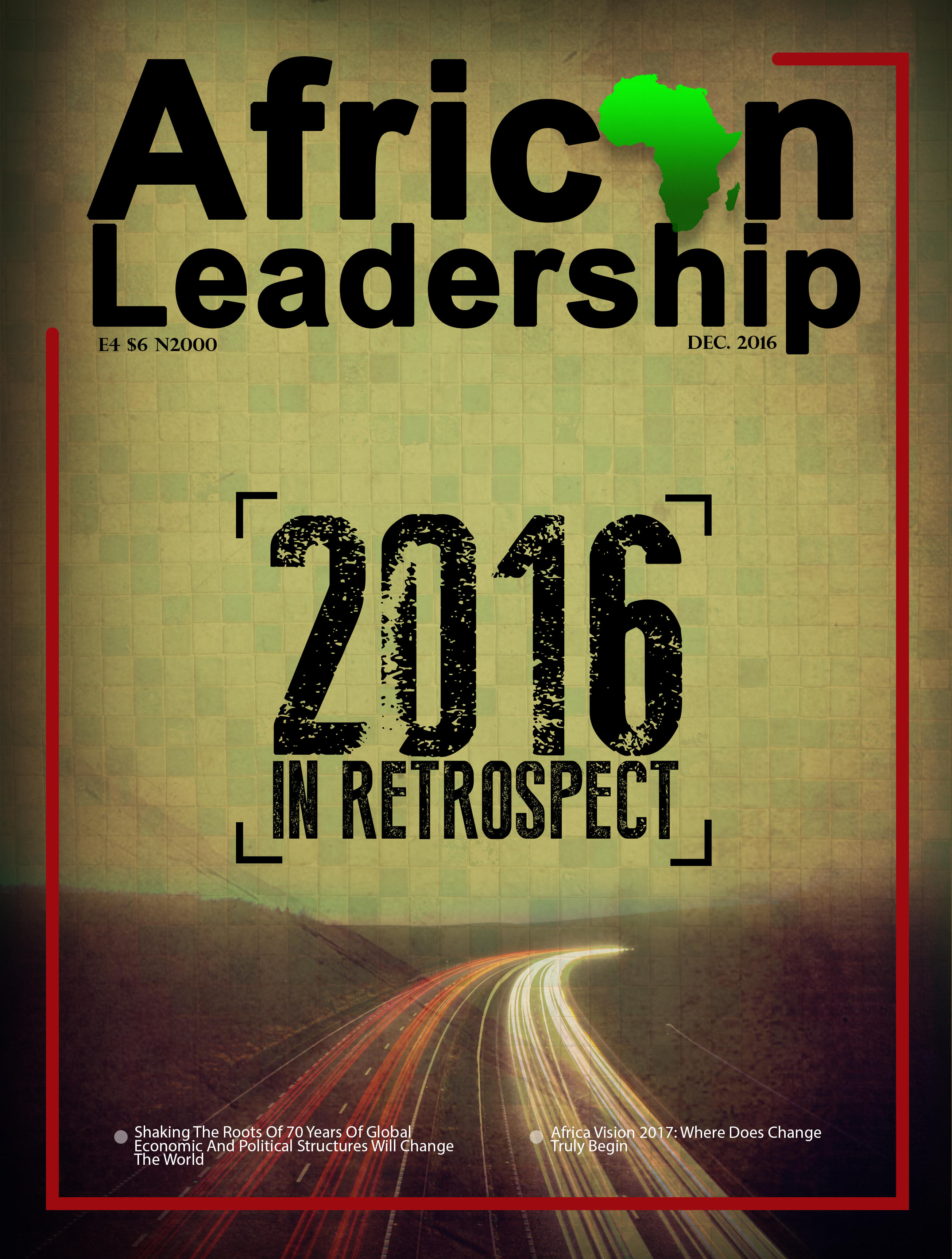
H.E. Samia Zekaria Gutu, Ethiopian Ambassador to Nigeria.
Though Ethiopia and Nigeria relations predate Nigeria’s independence in 1960, trade relations between both countries have remained static. Both countries boast of a combined population strength of over 300 Million – ready market, hungry for goods and services. The Economic Community of West African States, ECOWAS and the African Union, AU, have consistently clamored for more Intra-Africa trade, which will no doubt contribute in repositioning cooperation between countries in the continent, while also creating jobs for the teaming youthful population in the continent. Ethiopia Embassy in Nigeria is responding to this call through its efforts to scale up trade relations between Ethiopia and Nigeria. In this Interview with African Leadership Magazine’s Kingsley Okeke and Victor Gotevbe, the Ethiopian Ambassador to Nigeria, Her Excellency, Madam Samia Zekaria Gutu, talks about the Embassy’s efforts towards promoting trade, among other issues. Excerpt:
Tell us a bit about your service in government?
Well, thank you very much for this interview. I have served in government for a very long time. I could say I have served in government all my life. Before my posting to Nigeria, I served as the CEO of the Central Statistics Agency of Ethiopia, an agency responsible for providing facts and figures to aide planning in the country. So, I am not a career diplomat, I was appointed to serve my country in this capacity. Nigeria is a strategic partner to Ethiopia, and the relationship between Nigeria and Ethiopia predates Nigeria’s independence. Beyond Nigeria, I am also concurrently covering other African countries like, Togo; Benin; Equatorial Guinea; and Sao Tome and Principe.
It is common Knowledge that when diplomats are posted to Nigeria, it is regarded as a punishment, but they end up enjoying their stay in the country; why where you sent to Nigeria?
Far from it. As I said earlier, Nigeria is a very important country in the continent, so my being here is to help advance the relations between Ethiopia and Nigeria. In fact, I think this one of the most strategic places for any diplomat to serve. Recall I also mentioned that I have served in government at various levels of responsibility, and someone somewhere must have been watching to know that I have the competence to manage my mission in these countries including Nigeria. Actually, Ethiopia and Nigeria have had relationship spanning over55 years, so sustaining this relationship requires a lot of competence.
What are some of the lessons Nigeria can learn from Ethiopia in the area of the war against terrorism?
One of the most cardinal parts of the war against terrorism is having dependable intelligence network. From our experience, a country must use all forms of intelligence gathering mechanism. Ethiopia has used this strategy very well. Our military have also cultivated the trust of the people, such that they become your source of information-often being very vigilant to report any suspicious move. We have had our share of these issues, and we fully understand that peace is very essential to our development. Nigeria needs a very good intelligence network to get all sorts of information that could be used by the army, police, and security agents coupled with committed leadership.

Kingsley Okeke (L), presenting a copy of the African Leadership Magazine to the Ethiopian diplomat.
What is the Ethiopian Embassy in Nigeria doing to improve on the Nigeria-Ethiopia bilateral relations?
Ethiopia foreign policy is based on mutual benefit. We work with all countries in the world. So, we are always looking at development eradication of poverty as our priority. Our diplomatic relationship with countries and Nigeria inclusive is often hinged on economic diplomacy. We encourage investment into our country and also support Ethiopian businesses with interest in countries where we cover. My job in Nigeria flows from this pre-determined policy of mutual benefits and trade and investment. So this is what I am expected to do. Politically, we expect to bring the existing bilateral relationship to its highest level. There are a number of agreements both countries have signed; we need to bring those to implementation.
As you may know, there are a number of Nigerians undertaking investments in Ethiopia, like our brother, Aliko Dangote. There are also other individuals that have the resource that need to be encouraged to invest in Ethiopia. We also want to promote trade relations among African countries which are, very weak. When it comes to trade volume between Ethiopia and Nigeria the statistics was referring to shows is very small compared to what we have with Asia, Europe and others neighboring countries. I think there is huge potential to develop the trade relations among African countries. Tourism is a good area to start from. For example Ethiopia has very good number of tourist attractions. The country has many historical, cultural, natural and religious tourist attraction sites where we have nine (9) heritages registered by UNESCO. Ethiopia has many gifts to the world. One of them is the coffee since its origin is Ethiopia. We call Ethiopia is the land of origin as it is the origin of many.
What is the present volume of trade between Ethiopia and Nigeria?
It is very small, the statistical data of foreign trade shows it is less than one percent which is insignificant. But we must try to change that, which is why I am eager to engage the business community of Nigeria and Ethiopia.
Is there a chamber of commerce existing between both countries?
My predecessors tried to bring Nigeria-Ethiopia Business Association. They called it NEBA. For some reason however, that association have not really been quite effective. Since my arrival I have tried to meet with them and to see how we can move forward, but things are not moving as we want. Even though the current economic challenges in Nigeria are understandable, we hope things will have to change eventually.
Recently there is clamor for a National carrier in Nigeria, seeing the success of Ethiopia airways. Is your country disposed to helping Nigeria in setting up a National Carrier?
Ethiopian Airlines has been in Nigeria since independence, in bad and good times. Never suspended its flight, nor reduced its frequency. Ethiopia Airlines announced to recruit Nigerian pilots recently. Coming to your question, I think Ethiopia will always be there to support Nigeria. Even though Ethiopian Airlines is a government enterprise, it is also a business enterprise. The government does not interfere with management; it is solely a business entity that has been growing from year to year. This is an important lesson that one could draw. From 70 years of success story and rich experience, Ethiopian Airlines is more than happy to support Nigeria in setting up a National Carrier. As you may know it has also a very big aviation academy and huge maintenance service in Addis Ababa.
What are some of the things Nigeria needs to do to diversify?
Before I try to answer your question let me share the experience of my country. Unlike Nigeria, Ethiopia doesn’t have oil. Ethiopia is one of the low-income countries, landlocked, located in one of the most volatile regions of the world, and has the second largest population in Africa, with all the challenges and opportunities that entails, it has recorded one of the fastest economic growth rates in the early twenty-first century.
The country has demonstrated impressive dedication and ability to create the preconditions for a market-based and socially inclusive industrial transformation. It has also defined priorities for diversification and industrial development. Agricultural demand-led industrialization and export promotion played a key role in its strategy.
For instance, the country has experienced El Nino induced drought and flood related humanitarian crisis in 2015/16 crop year that has been managed well through the resilience it has created at all levels of government with strong leadership. On the other hand, huge investment on its agricultural and small and medium enterprises occasioned double digit of economic growth in the past 13 years. The growth is fast equitable, inclusive and pro-poor in which the country met most of the MDGs.
The lesson from Ethiopia could be the commitment of the Government at all levels. Unlike Ethiopia, Nigeria has abundant national resources i.e. agriculture, mineral resources with its good weather and fertile land coupled its large population, the country could easily diversify its economy.
Tell us about the Education exchange program between Nigeria and Ethiopia?
There used to be the education exchange program between Nigeria and Ethiopia, but that is no longer happening. As you may be aware, a lot of countries took some sterling examples from Nigeria. Ethiopia was on Education. Nigeria used to have a lot of professors and lecturers and they helped us develop our academic programs. That has been discontinued I guess because the agreement had ended.
What is your government’s Youth Employment strategy?
We have crafted the small and medium enterprise job creation program in urban centers. The Government has earmarked a revolving fund to help youth in creating their own job. On the other hand, modernizing agriculture as strategy to engage young people in rural areas is also crucial in implementing our agricultural transformation program. As we all know, young graduates wouldn’t like to go back to the traditional farm practices. That is why the Government is working on industrial parks where agricultural products would be processed and the job creation is sustainable.


